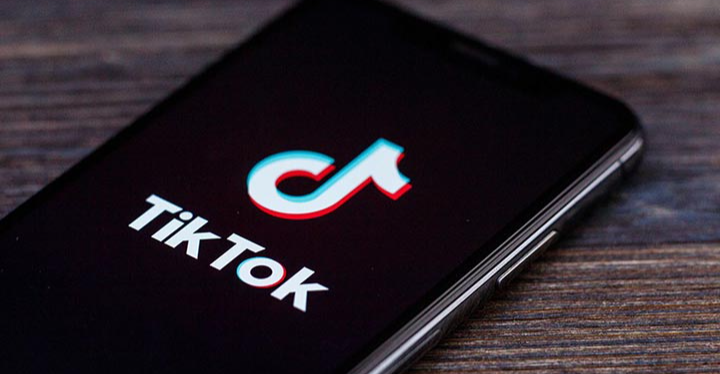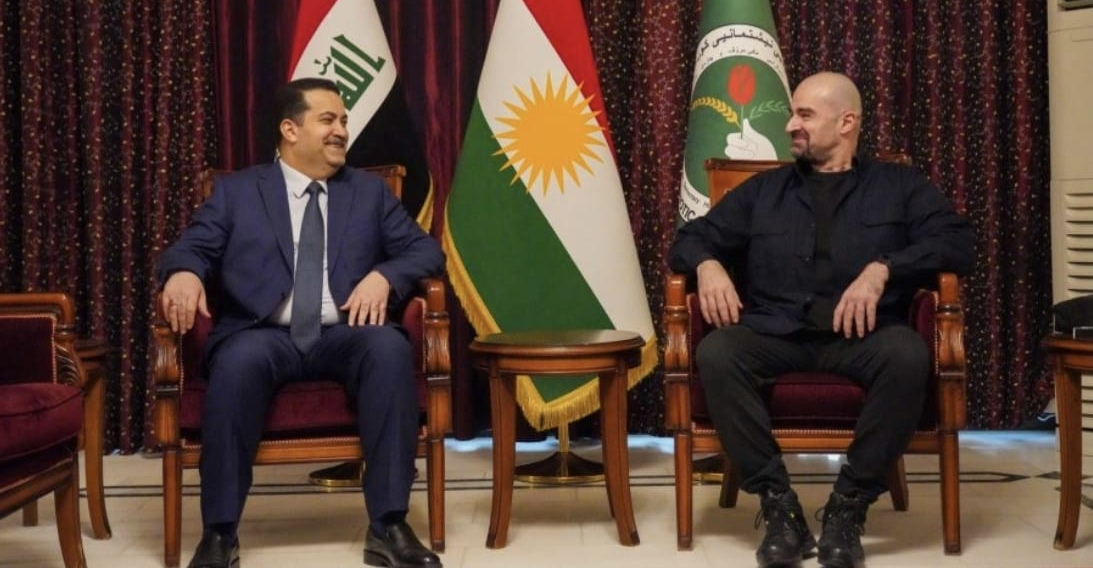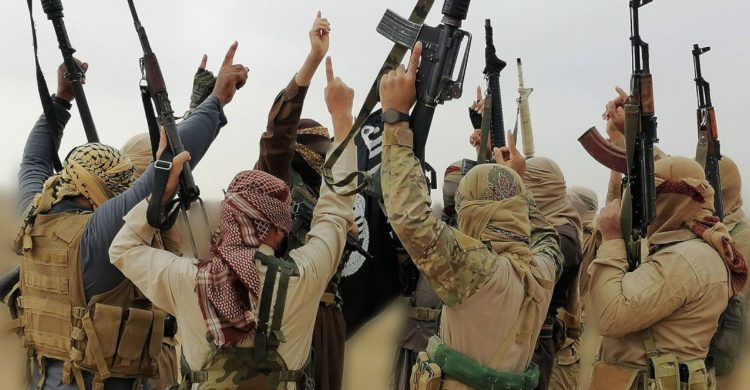Iraq’s TikTok debate: digital growth vs. cultural norms

Shafaq News/ As TikTok, one of the world’s most popular socialmedia platforms, continues to dominate the Iraqi digital landscape with about35 million users, the Ministry of Communications has pushed for a ban, citingconcerns over its “inappropriate” content. Yet, Parliament stands inopposition, warning that such a move would stifle youth expression and hindereconomic opportunities. Can a compromise be found to balance digital freedomwith the protection of societal values?
Social Media In Iraq: TikTok Tops The List
Social media use in Iraq surged in 2024, with 34.3 millionusers—73.8% of the population, according to a 2025 report by the Digital MediaCenter (DMC). This marks an increase from 31.95 million users in 2023, based ondata from global digital analytics firms We Are Social and Meltwater.
The DMC attributed the growth to changing online behavior and thegrowing influence of digital platforms.
TikTok led the way, adding 2.35 million users over the past year.“TikTok’s reach now surpasses that of all other platforms,” the report noted,highlighting its popularity among younger audiences and influencers.
Facebook grew from 19.3 to 20.1 million users, while Instagramclimbed from 18.25 to 19 million. Snapchat rose to 18.5 million, up from 17.74million, and X (formerly Twitter) reached 2.65 million, adding 100,000 users.
LinkedIn saw notable growth, increasing from 1.9 to 2.3 million,reflecting growing interest in professional networking.
Conversely, YouTube declined from 22.8 to 22.3 million users, andFacebook Messenger dropped from 15.7 to 15 million.
TikTok Doesn’t Suit Iraq
Iraq’s Communications Minister, Hiam Al-Yasiri, has urgedParliament to block TikTok, in response to “thousands of appeals from Iraqifamilies” calling for its shutdown. “This app features content that is notappropriate for our people and families,” Al-Yasiri stated. “We hope Parliamentwill make a decision, and we will follow through.”
This call for a ban is not new. Back in March 2024, Al-Yasirirevealed to our agency that her ministry had formally petitioned the Cabinet toblock the app, condemning TikTok for its role in “tearing apart Iraq’s socialfabric.” She further criticized the platform, claiming it offers “noeducational or scientific benefit” and is simply “an entertainment tool.”
Shortly after, Iraq’s Federal Supreme Court issued a landmarkruling on blocking online platforms that spread harmful or immoral content.This includes those that promote “debauchery, prostitution, and sexualdeviance,” or insult religious symbols and sacred texts. The rulingspecifically targets platforms that undermine public morals.
In a follow-up move, the Central Bank of Iraq instructed a halt tofinancial transactions with TikTok agents operating in the country, based on adirective from the Ministry of Communications.
Personal Motives Behind the Ban?
In Iraq, calls to ban TikTok have sparked heated debates. Economicexpert Mustafa Faraj argued that “TikTok has become a main platform forentrepreneurs, especially small traders and creatives. It is used to sell localproducts, market services, and build personal brands. Banning it would closesales and marketing channels for thousands of young people working in thedigital economy.”
“The ban is no minor decision—it affects a young generation tryingto build a new economy through their phones without burdening the state withemployment demands. Shutting down this avenue is a serious economic loss at atime when the world is searching for new sources of growth,” Faraj told ShafaqNews Agency.
For many, the platform is a lifeline. One content creator, whoshares reviews and advice on cosmetics, voiced her concerns about the ongoingthreat of a ban. “TikTok is a source of income for many who have built a largefollowing and use it to sell cosmetics and other products online,” she toldShafaq News, speaking on condition of anonymity. “They receive and fulfillorders from their followers while offering advice and support.”
Her frustration was clear. “Periodic threats to ban the app worrymany people, as it would impact sales and limit communication with followers.”
Reflecting on the underlying motivations, she suggested that “thepush to ban TikTok is wrong, and the real motive behind it is unclear. Anythingcan be used rightly or wrongly—the issue lies with the user, not the tool. So,the Minister’s talk might be an early election campaign or somethingpersonal—we don’t know.”
Enforcing a US Agenda?
The Parliamentary Communications Committee, responding to a requestfrom Shafaq News Agency, voiced concerns over the potential consequences ofal-Yasiri’s push.
TikTok, according to Committee member Haitham Al-Zarkani, is farmore than just a social media platform. “It’s a vital source of income forcountless young Iraqis, offering a space for information sharing, businesspromotion, and even political engagement,” he noted. The Minister’s proposal toblock the app, he argued, overlooks its significant role in the economy andpublic discourse.
Al-Zarkani also highlighted the geopolitical implications ofAl-Yasiri’s stance. “TikTok stands as the only major platform not affiliatedwith the United States,” he explained. “By targeting it, the Minister’s actionsseem to contradict Iraq’s stance against American monopolies.” He furthersuggested that her call to restrict the app might inadvertently align with USinterests. “After all, it was Trump who banned TikTok in the US,” he said,urging the Minister to be mindful of the broader context.
The Committee, he clarified, would be the body to handle any suchrequest. “Should the Minister’s request come to us, it will be discussedinternally and rejected without being brought to the floor of Parliament.”
Meanwhile, MP Jawad Al-Yasari emphasized that Iraq must remainaligned with global advancements in media. “While keeping pace with thecommunication revolution is vital, it must not come at the expense of socialcustoms or Islamic teachings,” he stated, stressing the importance ofsafeguarding citizens' freedoms while navigating the digital age.
Al-Yasari also called for a thorough evaluation of any potentialTikTok ban, urging specialized committees to assess the platform’s benefits anddrawbacks before a final decision is made.
A Human Rights Perspective
"Freedom of opinion and expression are fundamentalrights," Fadhel Al-Gharawi, head of Iraq's Strategic Center for HumanRights, remarked, emphasizing their universal importance across all laws,constitutions, and international treaties. These rights, he stressed, should beguaranteed to all people, as they are foundational to human dignity.
However, Al-Gharawi cautioned that such freedoms should not beunchecked or infringe on societal norms. Social media, designed to serve andbenefit people, can sometimes veer away from this mission. “While platformslike TikTok have great potential, in Iraq, they have started to cross the linesof what is acceptable," he noted to our agency.
Rather than resorting to an outright ban, Al-Gharawi advocates fora more balanced approach. He suggested that TikTok, like other platforms,should be regulated to ensure content aligns with public taste and moralstandards.
He considered a total ban on the app as not the right solution, andthat the government must create a safe and secure environment for people toexercise their rights, ensuring the platform remains accessible while adheringto societal values.



